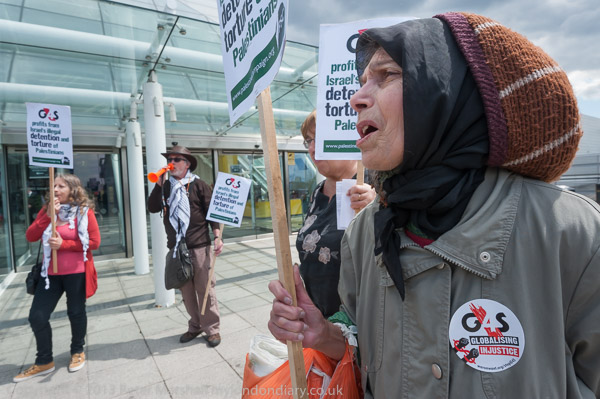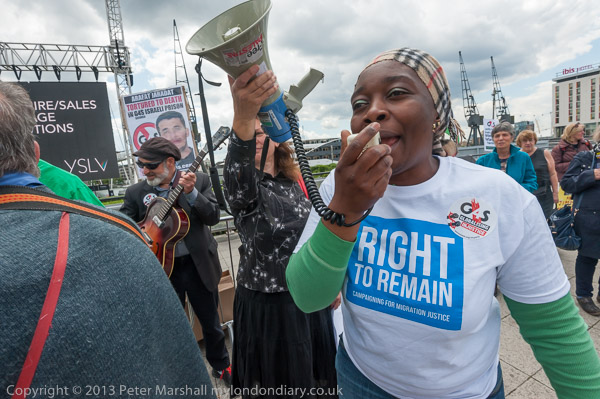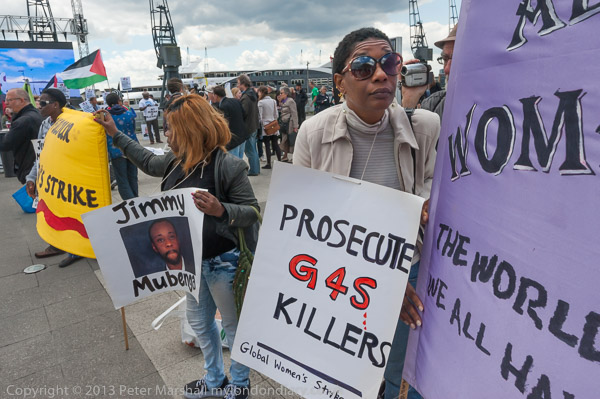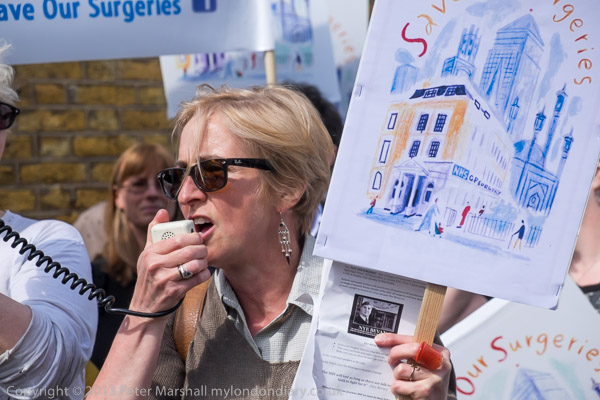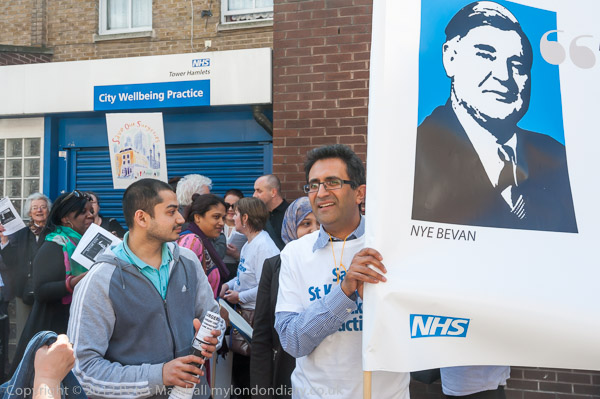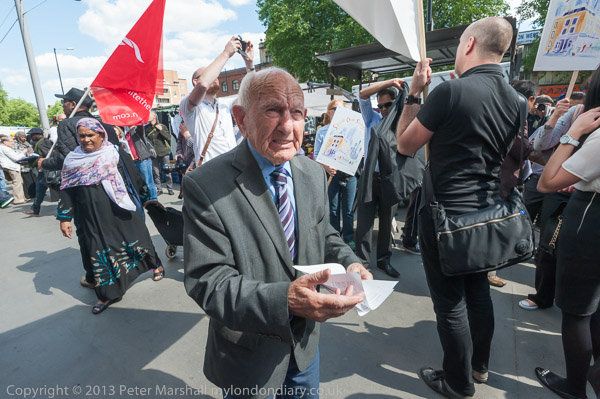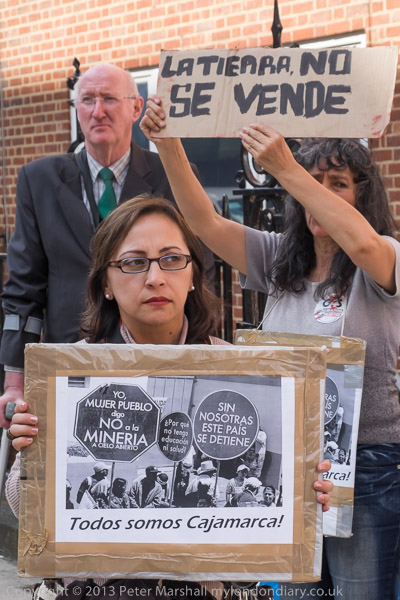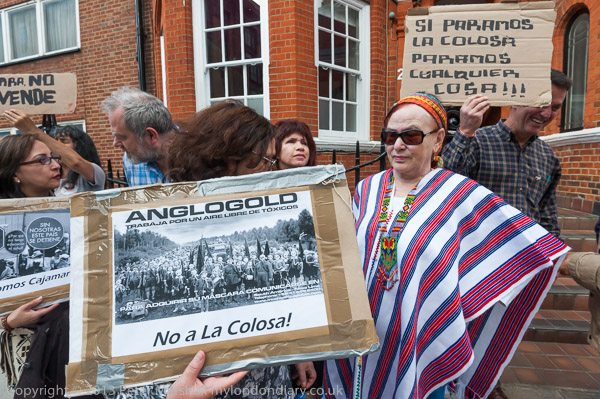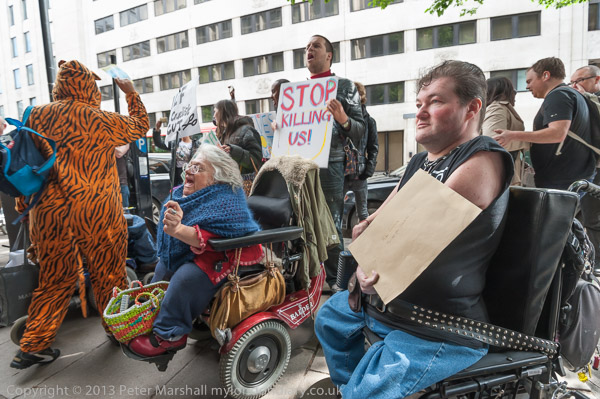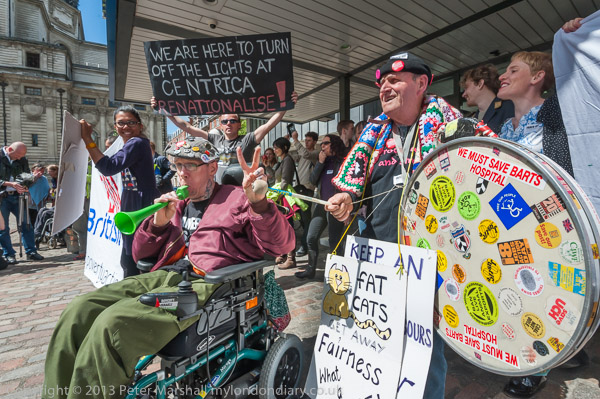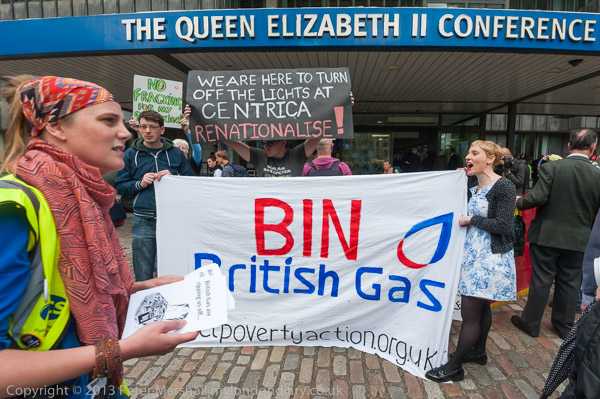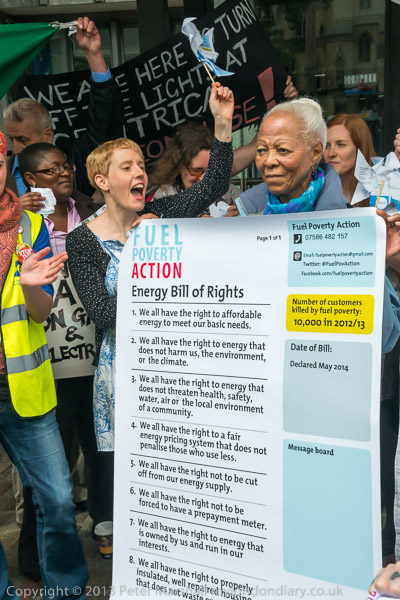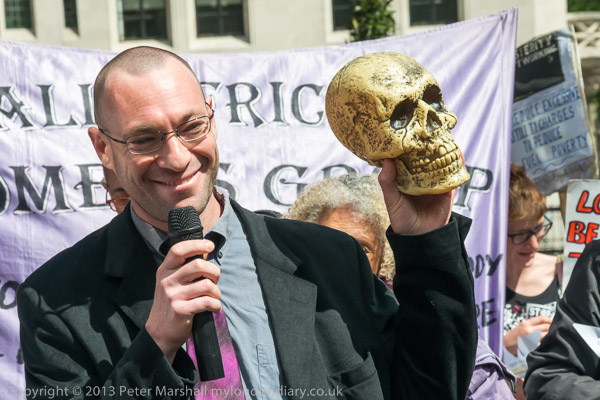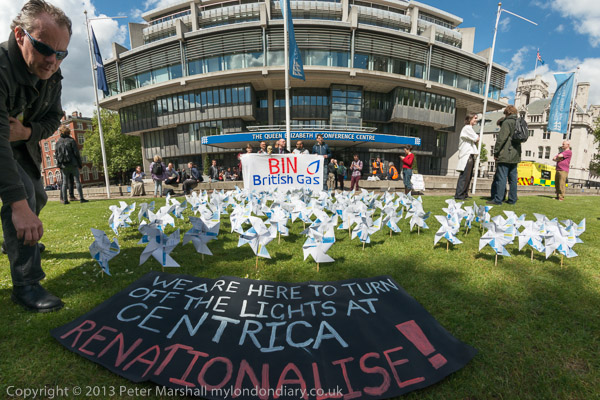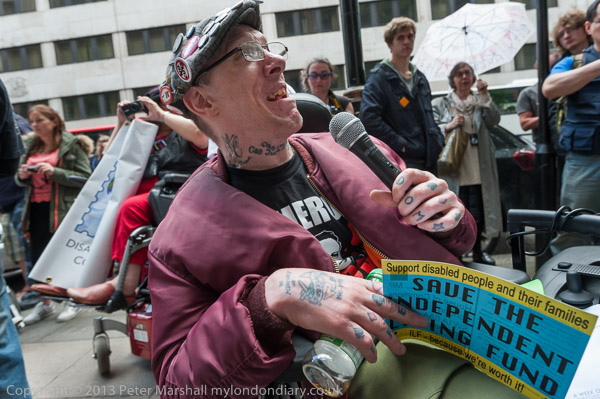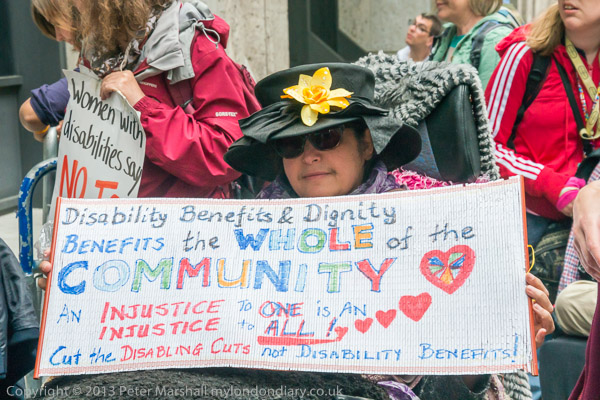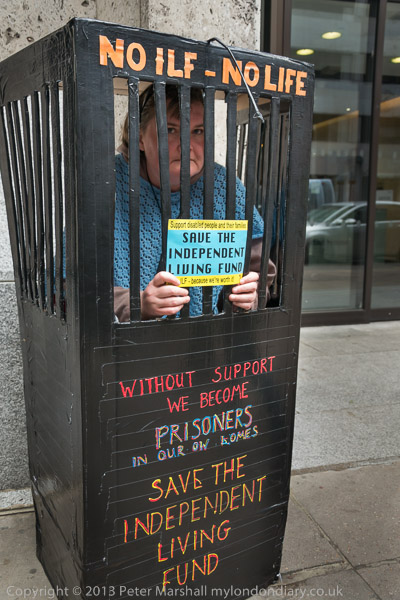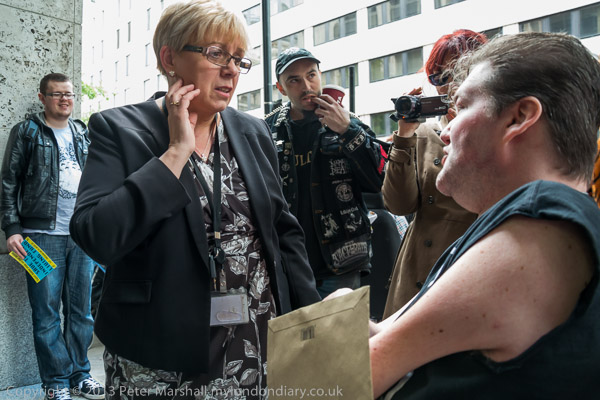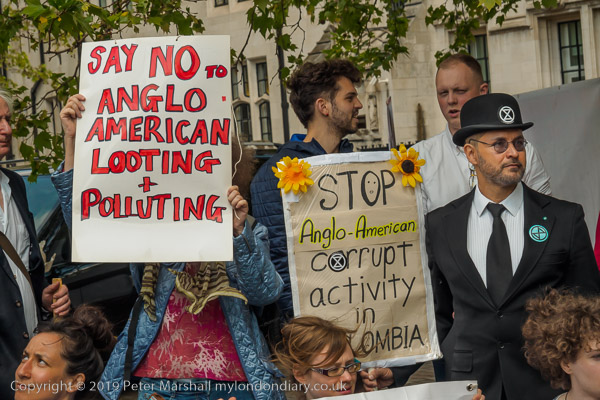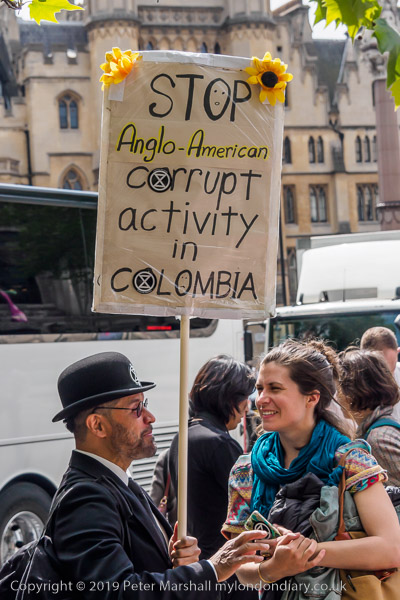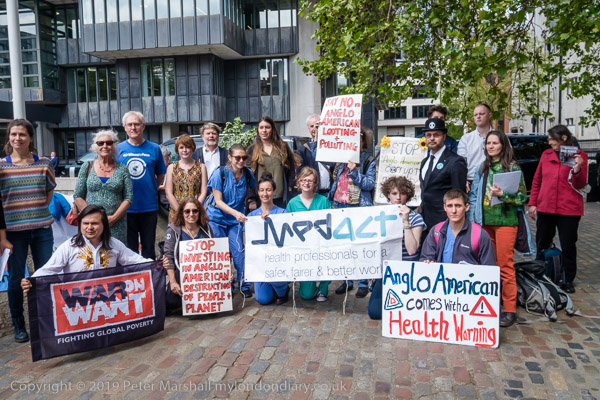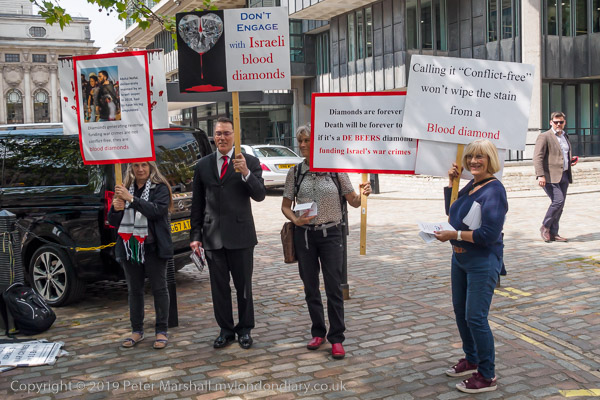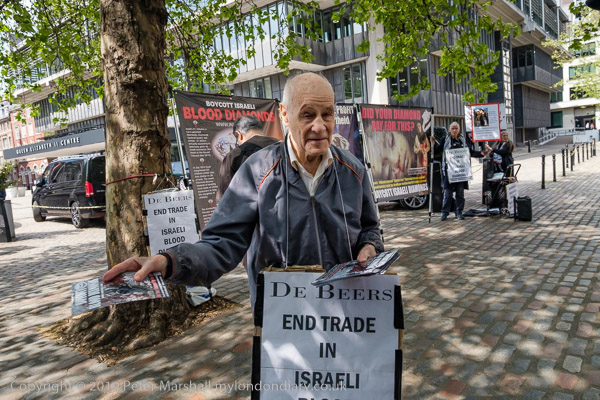G4S Abuses, The Line & Barking Creek: My day on Thursday 4th June 2015 began with a protest outside the AGM of G4S on the UN International Day of Innocent Children Victims of Aggression, after which I took a walk around the Royal Victoria Dock looking at the three sculptures then on London’s meridian sculpture trail before going for a longer walk around Barking Creek on this fine early summer day.
G4S AGM Torture Protest, Excel Centre, Custom House

I travelled out to the Royal Victoria Dock in Newham for a protest outside the Excel Centre where G4S was holding its AGM. It was the UN International Day of Innocent Children Victims of Aggression and protesters were there as G4S runs the Israeli prisons where Palestinian children are held in small underground cells in solitary confinement, often for many days.

An Avaaz petition with 1,792,311 signatures had called on G4S to stop running Israeli prisons and Inminds had held regular protests outside the Victoria St head offices of the company.

Some had bought shares in 2014 so they could attend the AGM and ask questions, and there were angry scenes inside the AGM as they were forcibly ejected. In 2015 there were also shareholder protesters, but security for the meeting was tight and mobile phones were prohibited and press were very definitely not allowed access.

As the protest outside continued, some of those who were ejected this year came and spoke about what had happened when they tried to ask questions, and the general feeling inside the AGM, which appeared to be one of some despondency.

Security at Excel made attempts to move the protesters further away from the building. Eventually a request was made to reduce the noise as there were students inside taking an exam and after some discussion the protesters moved back

G4S also runs immigration detention centres in the UK where various human rights abuses have been disclosed by reporters.
More at G4S AGM Torture Protest.
The Line – Sculpture Trail, Royal Victoria Dock
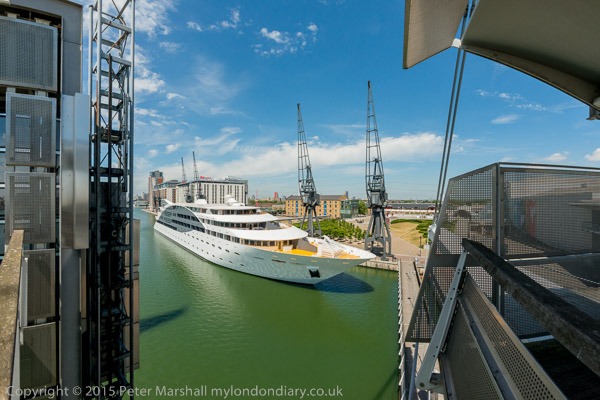
I left the protest and took the opportunity to walk across the high level bridge over the dock, taking a few pictures, and then along the path around the dock to the DLR station at Royal Victoria.
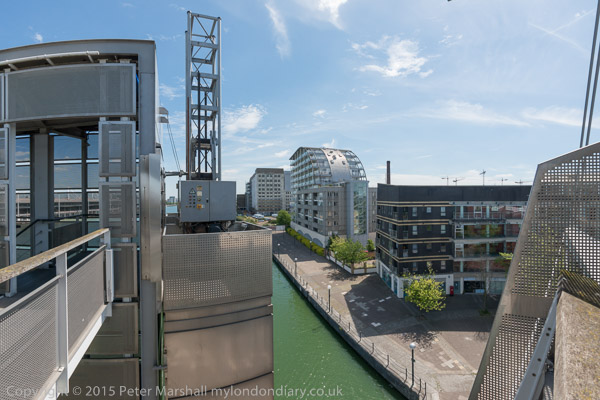
As on other occasions I found the views from the bridge stunning, and those at ground level were also interesting.
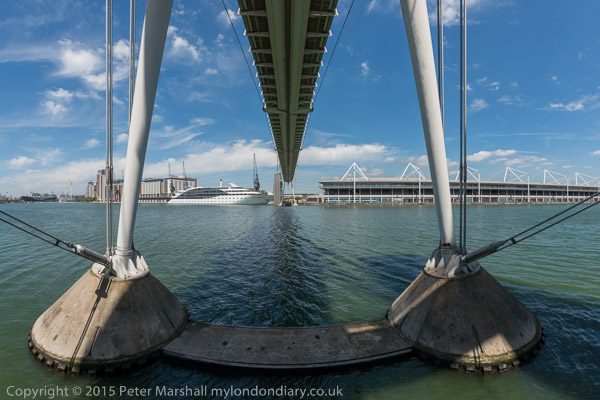
By the time I came to the first of the three sculptures on London’s sculpture trail on the Greenwich meridian the first two of these seemed extremely underwhelming. All have now been replaced by other works in a trail that regularly changes.
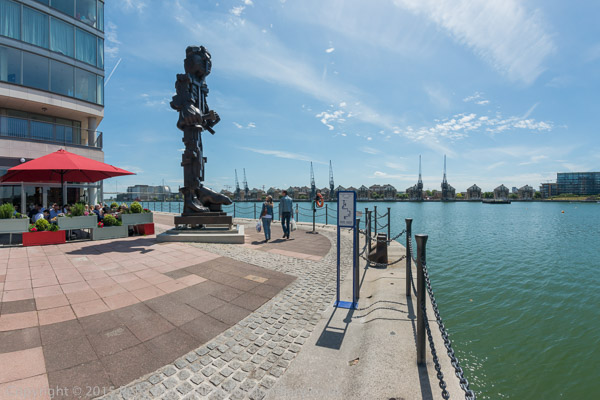
The only one I found of any interest was ‘Vulcan’ (1999), a 30ft-high bronze figure by late Scottish artist Eduardo Paolozzi, now in Edinburgh, close to his home town of Leith. You can see pictures of the other two on My London Diary.
The Line – Sculpture Trail
Barking Creek

It was a fine afternoon and I decided to return to Barking, hoping to go along the path on the west bank of Barking Creek to the hames, marked on my OS map as a traffic-free cycle route. But as in the previous year I found it fenced off and with a locked gate.

Instead I made my way north along Barking Creek, past Cuckold’s Haven to the Barking Barrage, a half tide barrier opened in 1998, going across this and returning alongside the east bank of the Creek to the A13, where I took a bus to Beckton and the DLR.

Barking in the nineteenth century claimed the world’s largest fishing fleet, with 220 commercial boats, going out into the North Sea fishing grounds, and fishing was the major industry of the town. But in the 1860s the fleet moved out to Gorleston in Suffolk and Grimsby in Lincolnshire, both much closer to the fishing grounds.
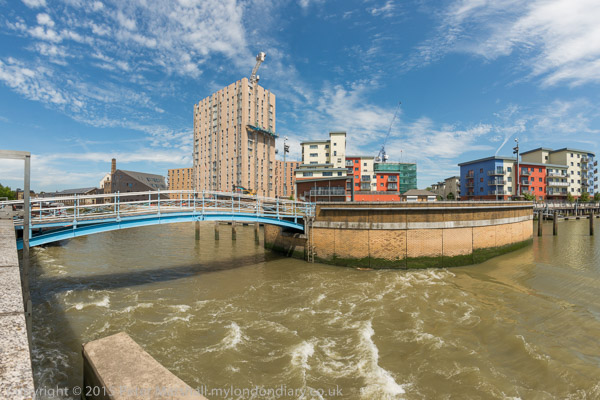
Until then the fish had been kept fresh by ice, gathered on Barking marshes in the winter and stored in large ice houses until taken out in the boat, or stored live, swimming in sea water tanks inside the boats. A fast schooner was used in the heyday to bring the catch from the fleet back to Barking so they could continue fishing for up to a couple of months. Once in Barking the fish was then well-placed for the London markets.

The coming of the railways meant that fish from Gorleston or Grimsby could be taken rapidly to London for sale, and the industry in Barking collapsed almost overnight. There are still a few boats moored on the river at Roding, but the only fishing is a few mainly elderly men sitting by the river with rod and line, who I’ve never seen getting a bite. And it would certainly be a brave man who would eat anything out of the Roding or Thames.

But fish is now coming back to Barking, or at least nearby Dagenham Dock, under a City of London Scheme, but although this has received planning permission it apparently still needs an Act of Parliament. Progress on this was halted by the dissolution of Parliament on 30 May 2024.
More pictures on My London Diary: Barking Creek.
Flickr – Facebook – My London Diary – Hull Photos – Lea Valley – Paris
London’s Industrial Heritage – London Photos
All photographs on this page are copyright © Peter Marshall.
Contact me to buy prints or licence to reproduce.
